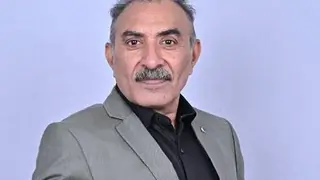Mozart's cradle to Indian raga: Long journey for Austrian jazz band
New Delhi, Dec 4 (IANS) From the birthplace of Wolfgang Amadeus Mozart in Salzburg to the jazz festivals of Europe and finally to India, the musical journey of K3, one of Europe's top five experimental jazz ensemble from Austria, has been one of assimila
Published: Saturday,Dec 04, 2010 13:55 PM GMT-07:00
New Delhi, Dec 4 (IANS) From the birthplace of Wolfgang Amadeus Mozart in Salzburg to the jazz festivals of Europe and finally to India, the musical journey of K3, one of Europe's top five experimental jazz ensemble from Austria, has been one of assimilation and eclectic creativity.
The three-member K3 plays a curious mix of Indian classical, electronica fusion, beats, soulful concertos, mystical saxophone compositions, American bluegrass and European dance music.
Set up in 2000 by three classical musicians Robert Kainar, Klaus Kircher and Herbert Koenighfoer - all bred on Mozart's compositions, K3 is a new convert to Indian raga music. The band's brush with Indian influence and collaboration with Indian musicians has given the group new names that uphold its commitment to India - K3 Goes India and K3 featuring Ranajit Sengupta.
'As the band is already on a five-city tour of India with a collaboration project, it had to temporarily change its name from K3 Goes India to K3 featuring Ranajit Sengupta,' Kolkata-based sarod exponent Ranajit Sengupta, told IANS.
He is collaborating with K3 on the project, 'K3 Goes India', featuring jazz and Indian raga fusion tracks.
The ensemble began its India tour with Puri Beach festival in Orissa Nov 24 followed by the Congo Square Jazz Festival in Kolkata, a concert at Blue Frog in Mumbai, and it is currently in the capital to perform at the Delhi International Arts Festival and SPICMACAY festival.
Sengupta met K3 nine years ago in Salzburg at a concert. 'I was playing with my Hamburg-based band, 'Kya Baat', a raga music and jazz fusion group. I liked the music of K3 and gave them one of my CDs. They liked my music too - and we decided to team up,' he said.
Since then, K3 and Sengupta have composed fusion music and have toured Europe. The band uses a combination of sarod, double bass guitars, e-bass, drums, saxophone, flute western beat drums, tabla and classical vocals.
Sengupta, who has been teaching at the World Music Department in Hamburg University for the last 17 years, divides his time between Germany and India. 'My music is primarily classical because I am a trained classical musician. For my vocals, I use Indian 'sargams (notes)' that gel with the western sounds and other styles,' Sengupta said.
K3 is often described as the 'efant terribles' of Austrian jazz, because of the artistic freedom they seek to create their noise, soul, classical and trance sounds.
'Our sounds will never be the same again after our India tour. The experiences of life and melodies of India have influenced us so much,' Klaus Kircher, who teaches music at the University Mozarteum, told IANS.
'The music of K3 had been changing for the last nine years since it was exposed to Indian music and started collaborating with Indian musicians,' the bass musician said.
Saxophonist and flutist Herbert Koenighfoer said: 'The idea behind our fusion project was to experiment with classical music and avant garde European jazz to create new sounds. European jazz is very different from American jazz. It has developed in its own way creatively without any cultural and historical influences.
As a result, European jazz varies between the mellow and soulful and sometimes between the peppy and the pop.
But why is jazz in the heart of Mozart's Europe. For K3, it is more to with the kind of music they love.
'Though we have trained in classical music at Salzburg, we realised that classical music was very conventional. We wanted our music to have its own soul. Jazz pays and allows us more freedom to innovate. We mostly play our own compositions influenced by jazz,' Koenighfoer said.
According to the ensemble, to create quality fusion music, musicians of the collaborating countries have to understand each other's music and respect the diverse genres.
'But bulk of the fusion music that happens now is confusion,' Sengupta said.
The evolution of jazz music in Austria - often dubbed the musical capital of Europe - is woven around jazz clubs and festivals. The Austrian jazz festival scene developed in the 1970s, and soon sprung in the countryside.
(Madhusree Chatterjee can be contacted at madhu.c@ians.in)
Join Our WhatsApp Channel
Stay updated with the latest news, gossip, and hot discussions. Be a part of our WhatsApp family now!
Join NowYour reaction
 Nice
Nice Great
Great Loved
Loved LOL
LOL OMG
OMG Cry
Cry Fail
Fail
















Post a comment